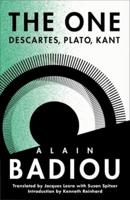Publisher's Synopsis
Beginning with Plato and Aristotle, philosophers throughout history have built their theories around the problem of reconciling a fundamental distinction, as for example, Plato's distinction between knowledge (reality) and opinion (appearance), Descarte's mind/body distinction, and Kant's a priori/a posteriori distinction. This 'problem of difference' is a classic theme in philosophy, and one that has taken especially intriguing turns in recent decades. Jeffrey A. Bell here presents a finely constructed survey of the contemporary continental philosophers, focusing on how they have dealt with the problem of difference.
Bell's work centres around three key figures - Husserl, Merleau-Ponty, and Deleuze. He also considers the positions of such thinkers as Foucault, Derrida, and Rorty, who have called for an end to the traditional response to the problem of difference - an end to the search for any ultimate foundations on which our varied and different experiences of the world might be based - and thus, in effect, an end to traditional philosophy.
In clarifying the relationship between phenomenology and poststructuralism, Bell analyses the role of paradox in both traditions, in particular the role it plays in accounting for difference. Not only philosophers, but also teachers and students in the area of comparative literary they will benefit from this book.









